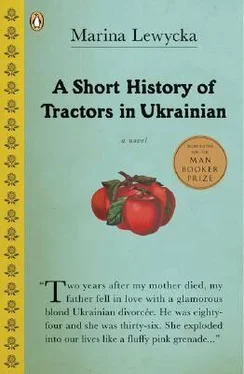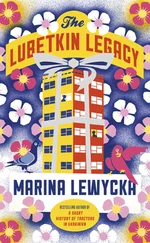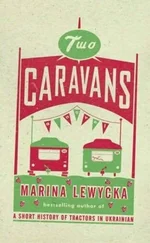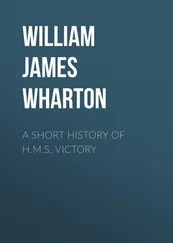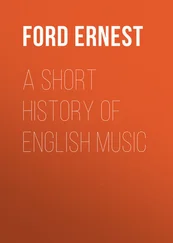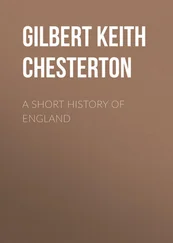“Twenty thousand pounds!” cries Vera. “It’s an outrage!”
“Anyway, you haven’t got £20,000, Pappa. So that’s that.”
“Hmm,” says Pappa. “Maybe if I sell house and go into old person’s home…”
“No!” Vera and I call out in unison.
“Or maybe you two, Nadia, Vera, maybe to help one foolish old man…”
He is dearly troubled by the demand.
“No! No!”
“But if the matter goes to court…” I am thinking aloud, “what would the court award?”
“Well, of course they could award half the property,” says Mrs Divorce Expert, “if he is the father of the child. If he is not, then I expect they would award little if anything.”
“Don’t you see, Pappa? That is why she is asking for the settlement now. Because she knows the child is not yours, and the court would award her nothing.”
“Hmm.”
“It’s a crafty trick,” says Mrs Divorce Expert.
“Hmm.”
“I’ve got a good idea, Pappa,” I say, emolliently topping up his teacup, “why don’t we telephone Laura Carter and say you are happy to offer £20,000 in full and final settlement, provided she is willing to undergo a paternity test, at our expense of course, and provided the child is found to be yours.”
“What could be fairer than that?” says Mrs Divorce Expert.
“What could be fairer than that, Nikolai?” says Mike. He has woken up and is standing in the doorway massaging his temples with both hands. “Is there any tea left in the pot? I feel a bit rough.”
Father looks at Mike, who winks at him encouragingly and nods his head.
“Hmm. OK.” Father gives a little shrug of surrender.
“What could be fairer than that?” says Ms Carter over the phone. “But…are you sure…?”
I look over at my father, frowning with concentration as he sips his tea, the paisley flaps of his nightshirt extension only partly concealing swollen arthritic knees, scrawny thighs, and above…I refuse to imagine.
“Yes, pretty sure.”
Stanislav led Dubov to Valentina. They disappeared together in the Rolls-Royce some time in the morning.
It is past midday by the time Dubov comes back, on his own.
He has a sombre look on his face.
“So tell us, where is she living?” I ask in Ukrainian.
He spreads his hands, palms up.
“I’m sorry, I cannot say. I have it in confidence.”
“But…we need to know. Pappa needs to know.”
“She is very afraid of you, Nadia and Vera.”
“Afraid of us?” I laugh. “Are we so frightening?”
Dubov smiles diplomatically. “She is afraid of being sent back to Ukraina.”
“But is Ukraina so frightening?”
Dubov considers for a moment. His dark eyebrows draw together in a frown. “At this time, yes she is. At this time, our beloved mother-country is in the grip of criminals and gangsters.”
“Yes, yes,” chips in Father, who has been quietly sitting in the corner peeling apples, “this is exactly what Valenka says. But tell me, Volodya Simeonovich, with such an intelligent type of people, how has this been allowed to happen?”
“Ah, this is the Wild West nature of the capitalism we are subjected to, Nikolai Alexeevich,” says Dubov in his calm, intelligent-type voice. “Those advisers who came from the West to show us how to build a capitalist economy, their model was the rapacious type of early American capitalism.”
Mike catches the words ‘Americansky capitaleesm’ and now he wants to get stuck in.
“You’re right, Dubov. It’s all that neo-liberal garbage. The crooks grab all the wealth, consolidate it into so-called legitimate businesses. Then, if we’re lucky, some of it can trickle down to the rest of us. Rockefeller, Carnegie, Morgan. They all started out as robber barons. Now the sun shines out of their million-dollar foundations.” (There’s nothing he enjoys more than a good political barney.) “Can you translate that, Nadia?”
“Not really. I’ll do my best.” I do my best.
“And there are those who argue that this gangster stage is necessary in the development of capitalism,” adds Dubov.
“This is fascinating!” cries Vera. “Do you mean to say the gangsters were brought there deliberately?” (Either her Ukrainian is rusty, or my translation is worse than I thought.) “Not exactly,” Dubov explains patiently. “But those gangster types who are already there, whose predatory instincts are held in check by the fabric of civil society, once that fabric is torn asunder, why, they flourish like weeds in a newly ploughed field.”
There is something irritatingly pedantic about the way he talks, a bit like Father. Normally it would drive me up the wall, but I find his earnestness is engaging.
“But do you see a way out of this, Dubov?” Mike asks. I interpret.
“In the short term not. In the long term I would say yes. Personally, I would favour the Scandinavian model. Take the best from both capitalism and socialism.” Dubov rubs his hands together. “Only the best, Mikhail Gordonovich. Don’t you agree?”
(Mike’s father was called Gordon. If there is a Russian equivalent, no one knows what it is.)
“Yes, of course, you can do that in a developed industrial country with a strong trade union movement, like Sweden.” (This is Mike’s home turf.) “But could it work in a country like Ukraine?”
He asks me to translate. I’m wishing I had not got involved in interpreting. We have both already taken the morning off work, and we need to get going. If we carry on like this, we’ll be getting out the plum wine next.
“Ah, there we have the big dilemma,” sighs Dubov with deep Slavic emotion, his black-pebble eyes fixed on his audience. “But Ukraina must find her own way. At present, alas, we accept unquestioningly everything from the West. Some of course is good; some is rubbish.” (Despite myself, I carry on interpreting. Mike nods his head. Vera moves over to the window and lights a cigarette. Father keeps peeling). “When we can put behind us the terrible memories of the gulag, then we will begin to rediscover those things which were good in our former socialist society. Then these advisers will be seen for what they are-truly robber-barons who plunder our national assets and install American-owned factories where our people will work for miserable wages. Russians, Germans, Americans-all of them-when they look at Ukraina, what do they see? Nothing but a source of cheap labour.”
As he warms to his theme, he talks faster and faster, gesticulating with his large hands. I am having trouble keeping up with him.
“Once we were a nation of farmers and engineers. We were not rich, but we had enough.” (Father is nodding enthusiastically in his corner, the apple-peeling knife suspended in mid-air.) “Now racketeers prey on our industries, while our educated youth fly westwards in search of wealth. Our national export is the sale of our beautiful young women into prostitution to feed the monstrous appetites of the Western male. It is a tragedy.”
He pauses, looks around, but no one speaks.
“It is a tragedy,” says Mike in the end. “And there’ve been plenty in that region.”
“They laugh at us. They suppose such corruption is in our nature.” Dubov’s voice has become quieter again. “But I would argue that it is merely characteristic of the type of economy which has been thrust upon us.”
Vera has been standing by the window, looking increasingly impatient with the conversation.
“But then Valentina will feel quite at home,” she declares. I throw her a ‘shut up’ look.
“But tell me, Dubov,” I ask, and I can’t help it if even now a note of bitchiness creeps into my voice, “how will you ever persuade someone as…as sensitive as Valentina to return to such a place?”
Читать дальше
